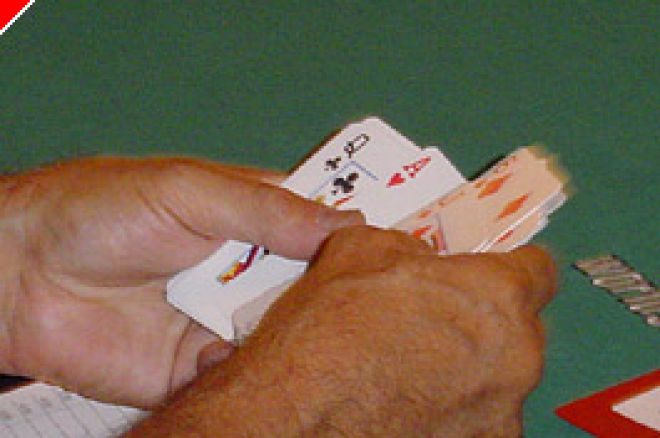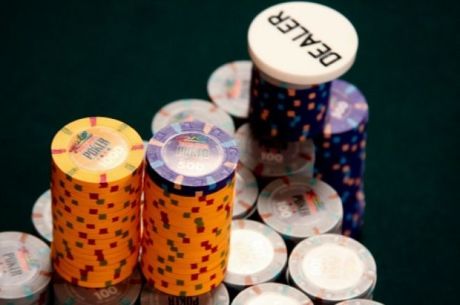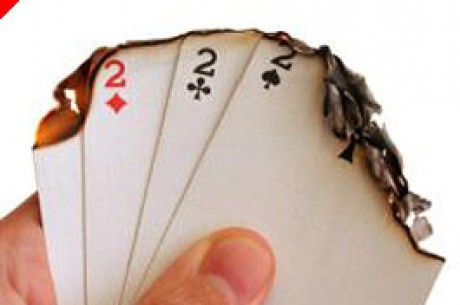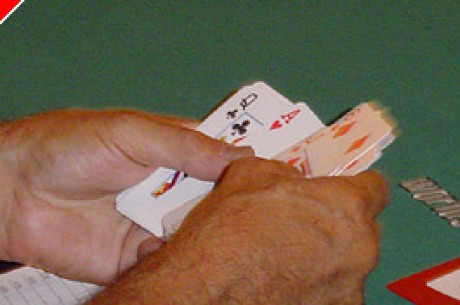Stud Poker Strategy: Beware Two Pair (Weak Ones)

Some poker players overvalue two pair �C playing them very strongly when they should not be doing so. We have a name for those types of players: Losers.
Two pair is a tricky hand. It is often second best or worse, yet there are situations when you will continue to play your hand because you have or hope to have two pair. Let me give you some guidelines for playing and winning with two pair. In this column I'll address situations when you want to play more passively and timidly than you might be accustomed to playing them.
First of all, I try to avoid situations when I'm going to end up with what I consider to be a weak two pair. I consider weak two pair to be those headed by something less than jacks up. You need to be very cautious in how you play these weak hands.
For example, let's say you're playing $5/10 stud at a full table and are dealt (9? 2?) 9?. Your nines and twos are live. A J? completes the bet to $5. You are next to go. Three players remain after you, one with a king, another with a queen.
Some players routinely call the completed bet with their pair of nines figuring that since they have a pair they should stay. This is, generally, a big mistake. They are likely to be up against a larger pair. So if both they and their opponent make two pair, it will be the weaker two pair.
But even if you hit and your opponent doesn't, you're not nearly as far ahead as you may think. Your opponent will have an overcard higher than your top pair �C making you only a small (57:43) favorite to win the pot. And here's the troubling truth about his hand. You won't know whether or not he's hit his two pair. And if he does and you do, you're almost a 3:1 underdog to him.
So my first suggestion is to avoid those situations where you have neither a high pair nor a high kicker �C keeping yourself out of two-pair trouble. But if you do hit your two pair on fourth street, you shouldn't fold to his bet. You should call with it.
Your opponent who completed the third-street bet with his jack is unlikely to check his hand on fourth even if he started out bluffing. (If, for example, he had the high board on third and raised as an ante steal.) If you've hit two pair he will still be high on board and will probably bet. You should call.
It's tempting to raise. But unless you're trying to knock out a third player in the hand, this generally doesn't make sense. Let the jack continue to think he might be able to knock you out of the hand by betting.
If the jack bets fifth street and hasn't caught a visible pair you should call behind him again. Don't raise. Your advantage is slight if you have two pair and he only has his overpair. You'll make more money by getting him to continue to bet. If he checks, on the other hand, you should bet �C since if you have two pair and he only has a pair of jacks you are a slight favorite. And if he's just got a single jack he will almost surely fold.
If he caught two pair, of course, you won't know it �C and he'll be a big favorite over your two pair. If he checks it, it's possible that he's setting you up for a check-raise. But with only a hand like jacks up, it's generally unlikely that he would be that crafty. And besides, there's only about a 1-in-13 chance that he hit his second pair. But if you are check-raised you should surely fold (unless the guy is a wild man �C in which case you should have just checked behind him anyway).
On sixth street and the river do the same with your two pair. If he doesn't visibly improve �C call if he bets and bet if he checks. But don't fold to a check-raise. The pot will be large enough to make it worthwhile to call the extra bet, and you have a thin shot of hitting a full house on the river. On the river, with two pair, you must call his bet because of the large pot �C just in case he is overbetting or bluffing.








